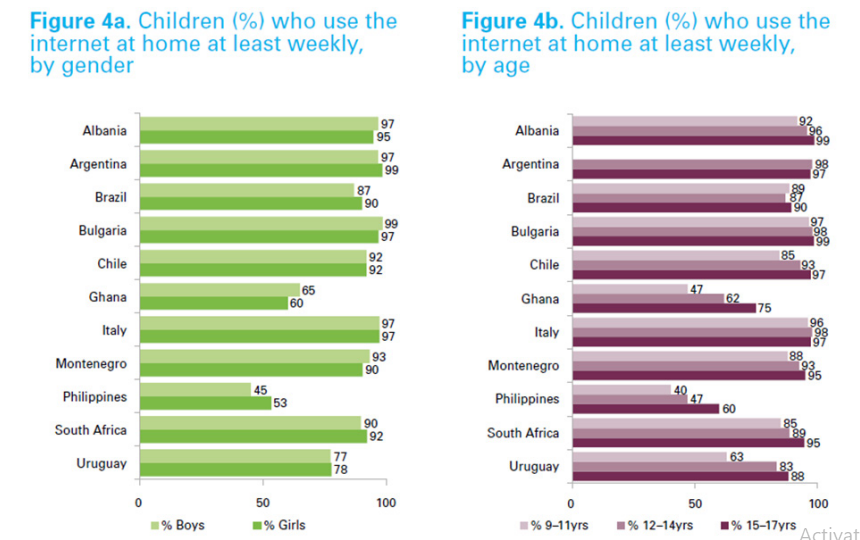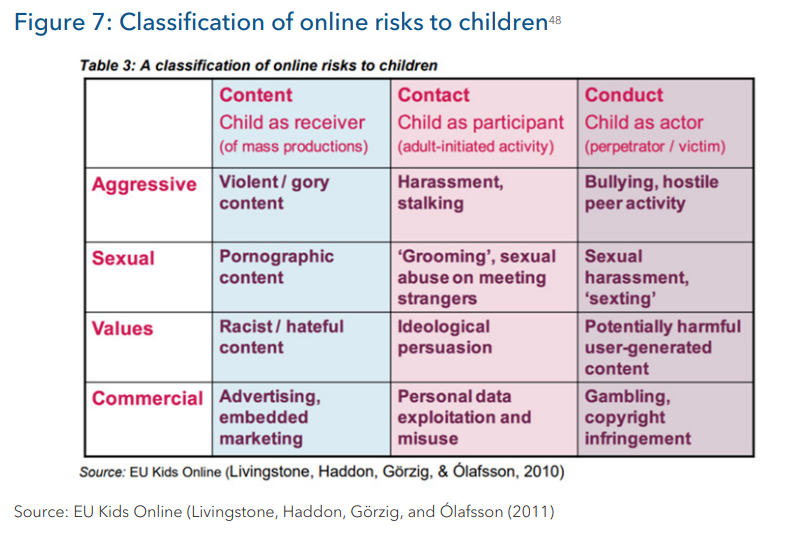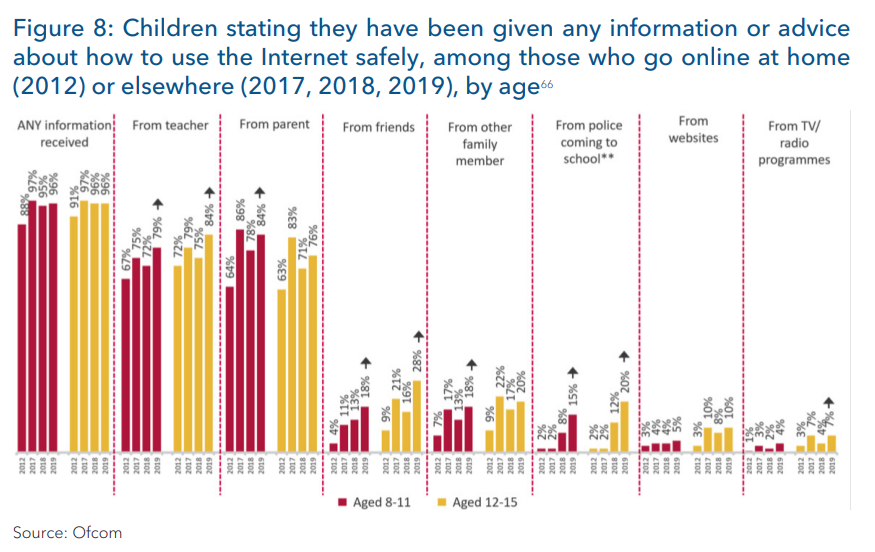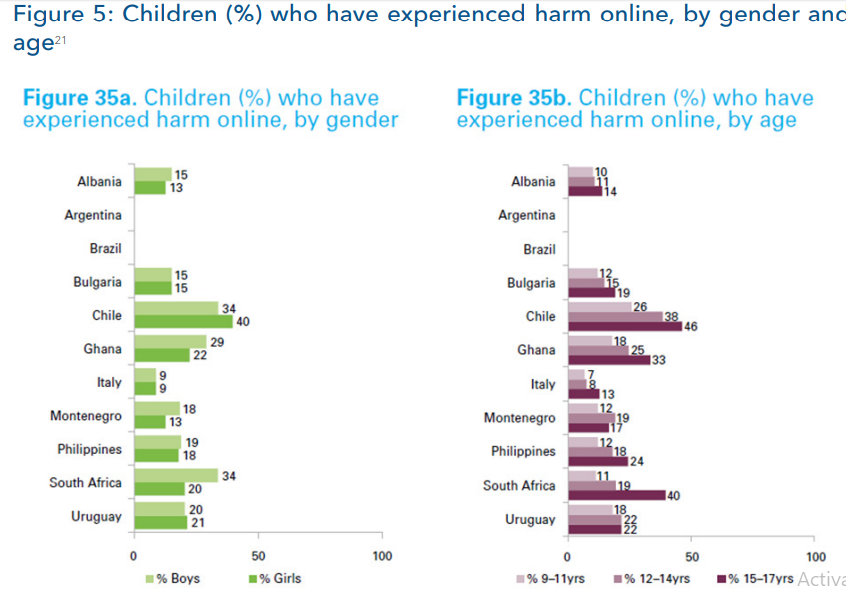The pandemic has sparked a new way of life where it’s impossible to consider the digital and physical worlds separately. From online classes to virtual raves and parties, children and young people now live more of their lives online.
The internet provides important access to health, social and educational services as well as information that are important for young people but it also exposes them to the dark side of society.


The internet contains a range of unhealthy content, contacts and threats that could be harmful and have lasting negative effects in children if they are not protected. Parents, caregivers, guardians and educators have a crucial role to play in the safety, wellbeing and education of children and young people.
One-third of all Internet users today are children and young people, and UNICEF estimates that 71 per cent of young people are already online.
In its latest report, the International Telecommunication Union (ITU) has revealed top guidelines for parents and educators on Child Online Protection (COP). Here are some of them.
Parental Control Tools
There is a range of aspects for parents to consider when protecting children online. From protecting them from videos of graphic brutality to indecent pictures, parents often feel that they are ill-equipped to deal with the challenges that children face online.
However, parents can leverage internet services providers and mobile operators who will provide parental control tools that allow them to block and restrict access to certain types of content. It also allows them to limit the amount of time spent on devices.


Dialogue and Discussion
Apart from censoring content, its important that children feel able to talk to someone especially if they are upset, worried or concerned by something that they have seen or that has happened to them online.
According to the report, many young people are reluctant to speak to an adult about a negative online experience for fear of the consequences like being banned from particular sites or devices and being blamed for something that may not have been their fault.
“A man was sharing naked pictures of himself and had also asked a 13-year-old girl to send naked pictures of herself to him. The girl didn’t oblige, she blocked the man. However, the girl did not tell her parents for fear of their reaction. She was convinced that they would tell her that she couldn’t use Instagram any longer and for her, this wasn’t an option.”
She explained that “Instagram was where all of her friends shared the news, gossip and social arrangements, and so on. The girl genuinely believed that her parents (in a desire to protect her) would tell her that she had to stop using Instagram.”
The problem is that the girl hadn’t done anything wrong, the man sending the images was the one who was behaving inappropriately. Considering the gravity of the content it is perhaps understandable why parents overreact but surely it isn’t right to punish your child for something that someone else has done.
That’s why it is important for parents to think about their reaction when their children tell them about online abuse. Instead of reacting instinctively, they should have meaningful dialogue and debate around online related issues. This helps them become resilient users of technology who know how to keep themselves safe and when and where to ask for help and support if needed.


Identify all the devices and services used by your child
Starting with your children devices, identify all the devices in your home that are connected, including mobile phones. Keeping track of all the devices they can use to will help you better monitor what they have been up to.
Similarly, knowing the apps and services (like social media) used by your children will help you understand how they are spending their time online. It also helps you ensure that the platforms they are using are as safe as possible, including making accounts private, being aware of age restrictions etc.
Keeping children safe is much more important than their privacy. So check to see if any products are sold or in-app purchases are included, friend and group list on social media platforms among others can help you understand some of their motivations online.
Rules and expectations about using the internet and devices
As soon as children begin to use technology, you should discuss and establish a list of agreed rules. These rules should include when they can use the Internet and how they should use it, as well as expectations of screen time.
Also, spending time online with them will help set the right examples for your children. This is because children are more likely to adopt parents behaviours even online.
Digital Age of consent
What many parents are ignorant of is that many websites have a digital age of consent. Depending on the country, there are laws specifying a minimum
age at which website can ask a young person to provide personal information about themselves without first obtaining verifiable parental consent.
This is important because parents can ensure the contents on the website is child friendly before providing access. So, you can consciously check the minimum age requirement before you let your children on any platform.
Control use of credit cards and other payment mechanisms
Children often have the impulse to get what they like. Just like they choose several colours of ice cream even if they don’t know the flavour, the same can also happen online.
Many devices, apps and services can be used to make purchases and carefully manage access to parental accounts with stored payment
mechanisms and credit cards. If credit cards are left unguarded, children can purchase harmful content unknowingly because it’s attractive.


Advertising, misinformation and disinformation
Advertising can be inappropriate and misleading for children. Enlightening your children about how they can report ads and take more control over what they see online goes a long way in protecting them online.
What children and young people see online can significantly influence their views. so it’s important to engage with them to help them to develop their online media moral and literacy.
Children’s education
As children learn more about the online world, they may wish to meet people who they’ve formed a relationship with online. However, with people online often wearing masks of personality, children could be in real danger if they physically meet strangers with whom they have communicated only online.
So, it’s important to educate them on the dangers of meeting up with a stranger they’ve been speaking with online. Make it clear that
you would rather go with them, or ensure another trusted adult goes.
Conclusion
Technology has changed the way we live. The continuous and growing innovations in the sector have provided unlimited access to information among other things. However, it has created new opportunities for exploitation and abuse, especially among children.
Without proper safeguards, children and young people are at risk of unwanted sexual solicitations, harassment, and unwanted exposure to violent, sexual and other distressing material.
ITU consultations have demonstrated that some countries struggle to allocate sufficient resources to tackling the digital literacy and safety of children online. However, it is crucial that parents discuss and decide with children and put in more effort in making the internet safe for their use.






